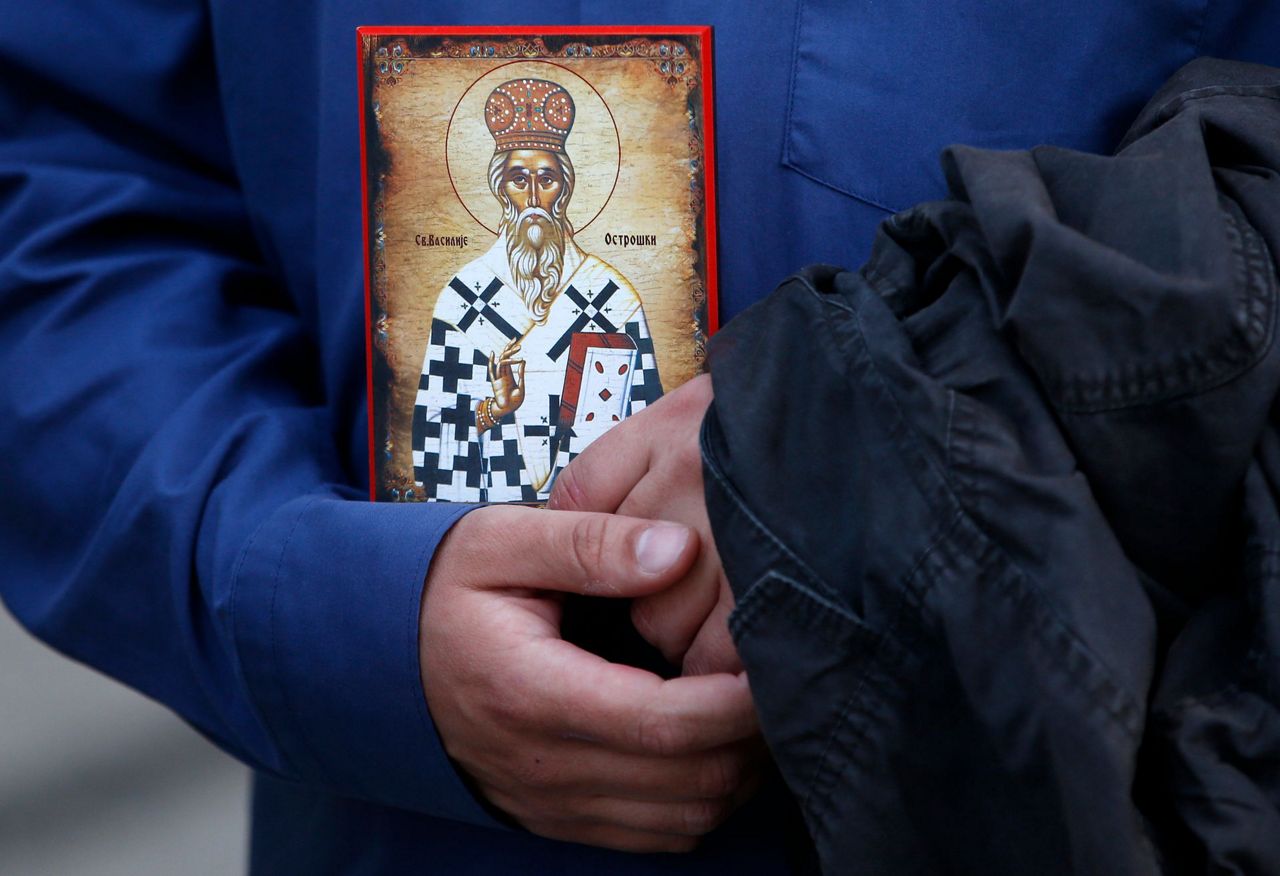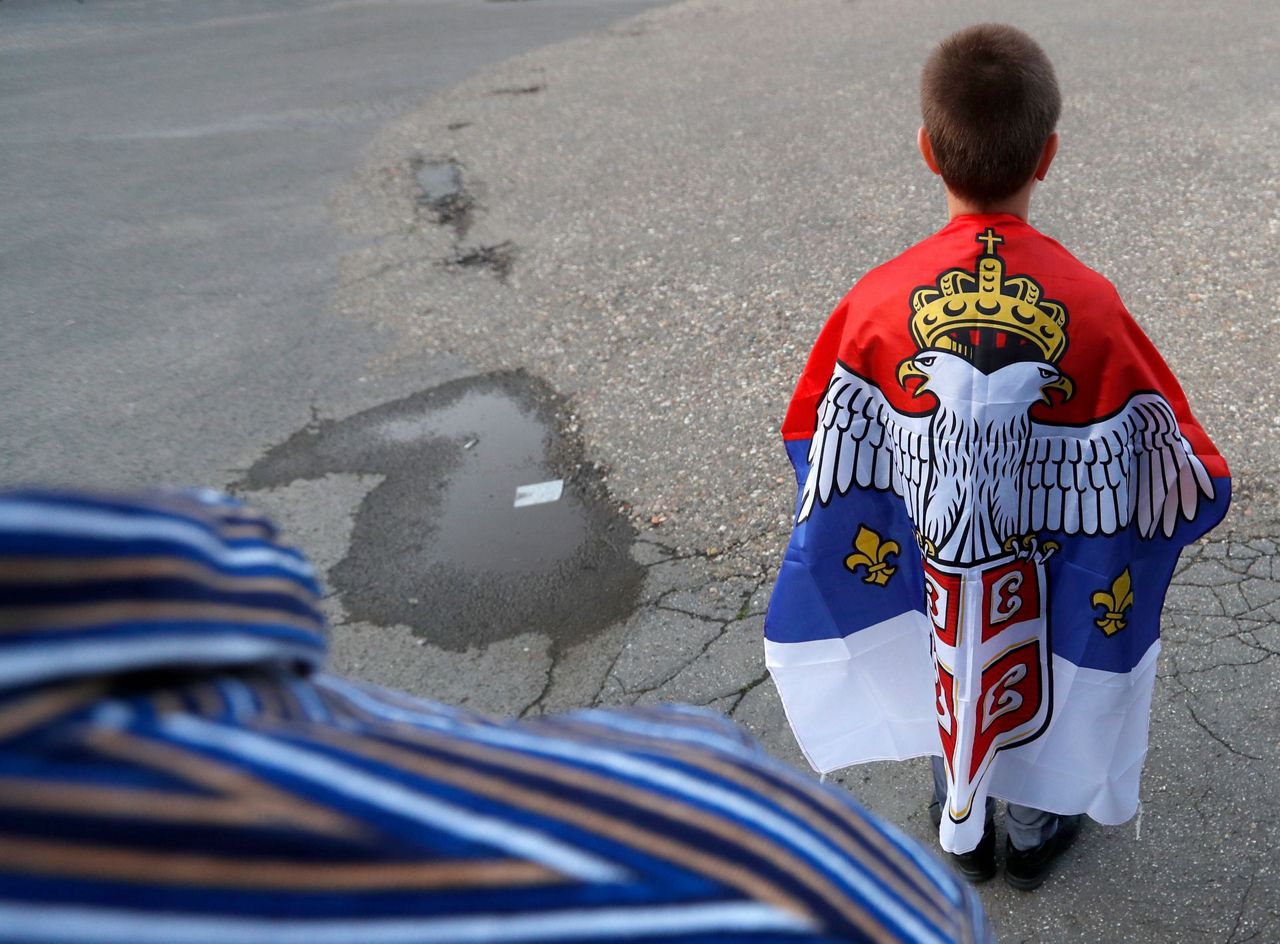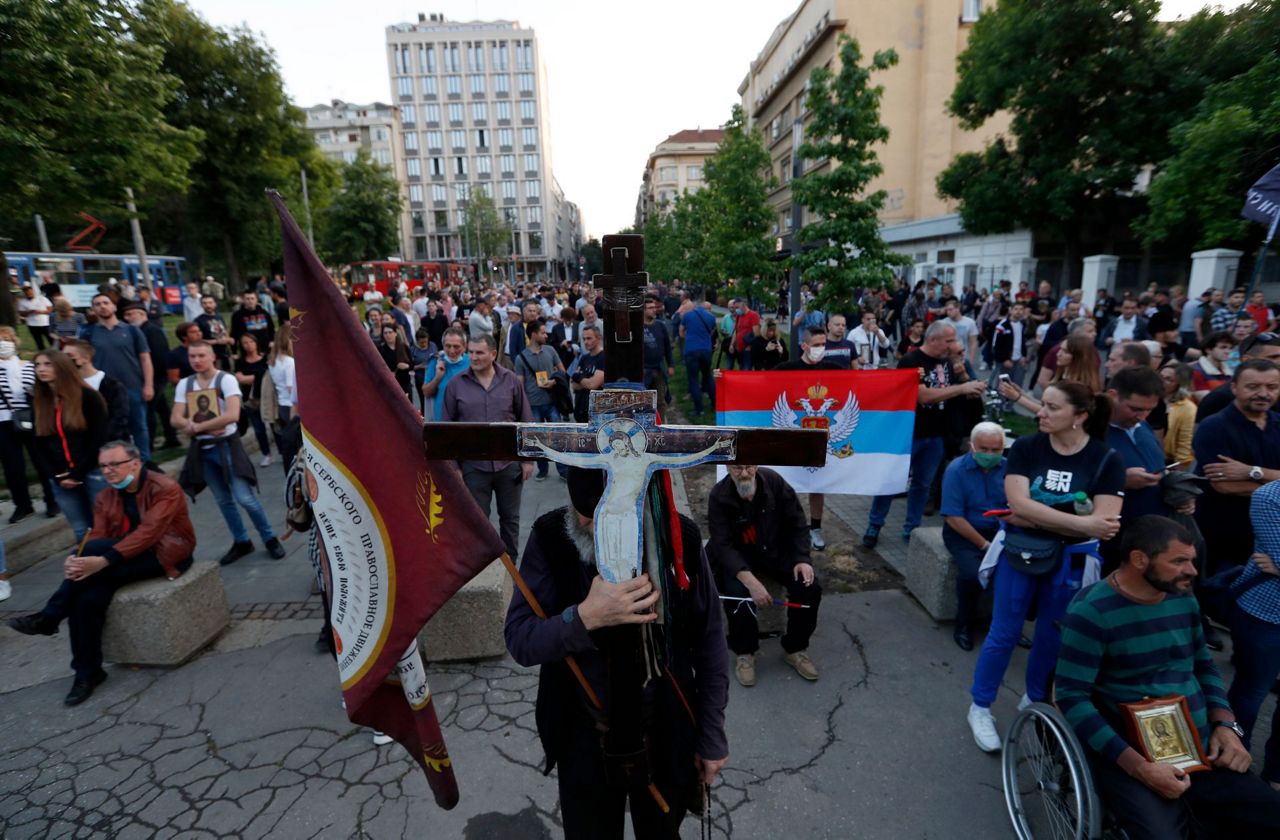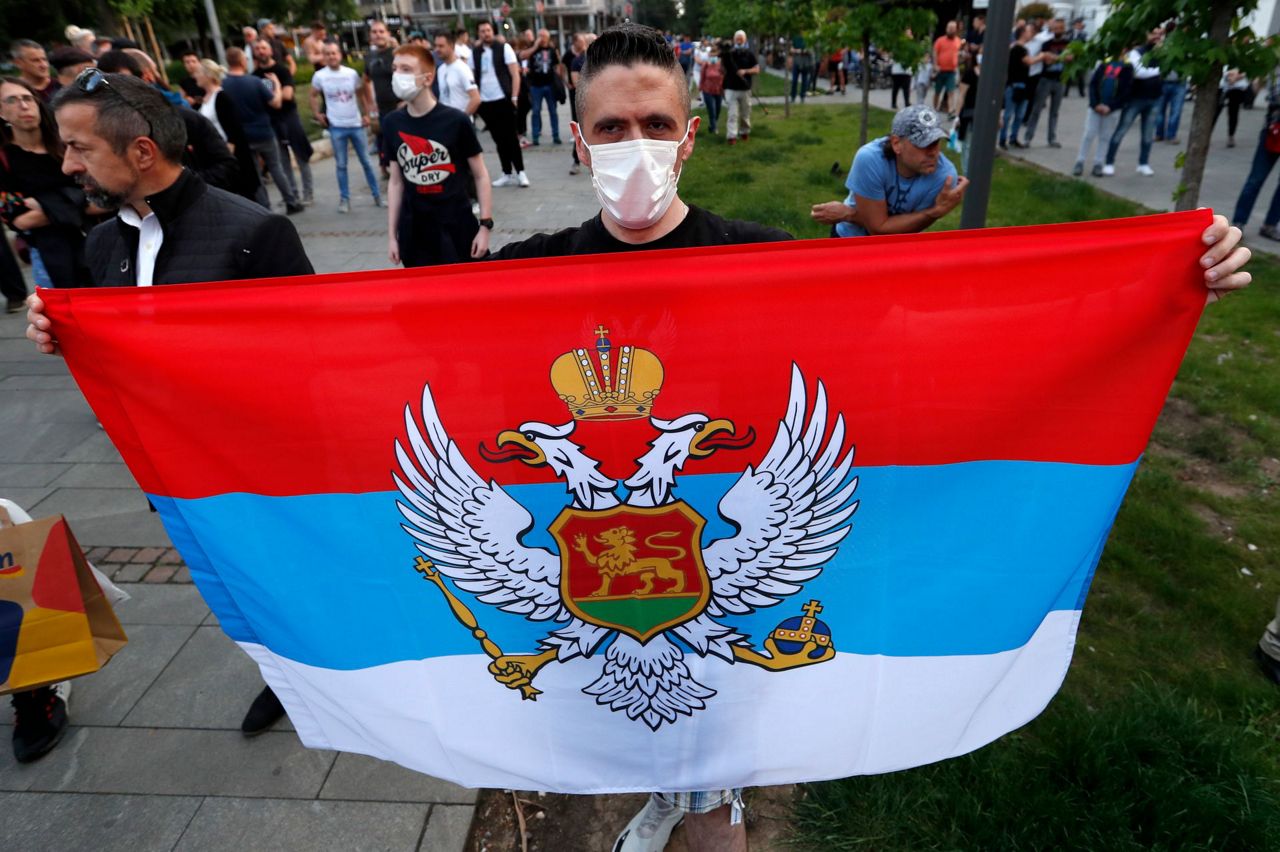BELGRADE, Serbia (AP) — Serbia’s president has pledged to protect Serbs in Montenegro who he says are threatened by the possible formation of an independent Orthodox Church in the small state, as tensions escalated between the two former Balkan allies.
President Aleksandar Vucic said after meeting Wednesday with the head of the Serbian Orthodox Church in Belgrade that he will use all “legal and democratic means” to tell the world about the alleged plight of Serbs in Montenegro.
“We will do that by respecting the Montenegrin state and its independence,” Vucic said. “But we also respect our people and we will insist on the unity with our people.”
Tensions between the Montenegrin government and the Serbian Orthodox Church in Montenegro have escalated over a religious law adopted by the Montenegrin parliament last year that the Serbian church says would strip it of its property.
Montenegrin officials have repeatedly denied this, but that has not stopped Serbs in Montenegro from staging large anti-government demonstrations that sometimes turned violent.
A country of 620,000, Montenegro split from much larger Serbia in 2006, but many in Montenegro and Serbia still remain opposed to the separation. Montenegro joined NATO in 2017 despite strong opposition from another historic Slavic ally, Russia.
The Serbian Orthodox Church, based in Belgrade, is still the main religious body in Montenegro, which was one country with Serbia for nearly 90 years. Some 30% of Montenegro’s people identify as Serbs.
Montenegro President Milo Djukanovic warned last week that if the dominant Serbian Orthodox church does not transform itself into a church of all Orthodox believers living in the Adriatic state, a separate Montenegrin church would have to be formed.
At a joint news conference with Vucic, Serbian Patriarch Irinej lashed out at Djukanovic and his government, comparing them to the World War II pro-Nazi puppet state in neighboring Croatia. Tens of thousands of Serbs, Jews, Gypsies and anti-fascist Croats perished in concentration camps run by the so-called Ustasha regime during the war.
The Patriarch said by forming the Montenegrin Orthodox Church, Djukanovic wants to do what the Ustashas did, “chase out" the Serbian people and “destroy" the Serbian Orthodox Church.
Such rhetoric and alleged threats against Serbs in neighboring states years ago contributed to a bloody breakup of the former Yugoslavia in the 1990s. The Serb-led Yugoslav army took action in Croatia and Bosnia, allegedly to protect the minority Serbs from those regions' goals of becoming independent, but then embarked on a campaign to drive other ethnic groups out.
Copyright 2020 The Associated Press. All rights reserved. This material may not be published, broadcast, rewritten or redistributed without permission.






